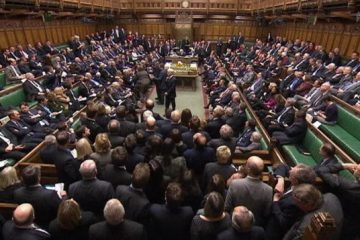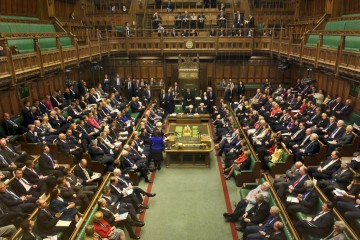
How did Voting on the Brexit Referendum Affect Voting on May’s Brexit Deal?
On January 15, 2019, Prime Minister Theresa May’s Brexit deal suffered a defeat of historic proportion in the House of Commons: 432 MPs voted against and 202 for the ‘EU Withdrawal Act’, with a staggering margin of 230 votes. But how do the MP positions on May’s deal compare with the constituency-level votes on the 2016 referendum? [i] Notably, almost all the intra-party variation in voting takes place on the Tories’ side of the aisle. Only 3 Labour MPs bucked the party line and voted for the deal, whereas 118 Tories voted against May’s proposal. The plot below shows the distribution of constituency vote on the Brexit referendum by MPs voting either for or against the Brexit deal. The graph …

Brexit from the back benches: have the whips become the straw men of British politics?
The liberal philosopher A.C. Grayling is one of the foremost opponents of Brexit. No doubt he salutes the bravery of those Tory MPs dubbed ‘mutineers’ by the Daily Telegraph when they brought about Theresa May’s first Commons defeat as they supported an amendment to her EU withdrawal bill to give Parliament a legal guarantee of a vote on the final Brexit deal”. These Tory MPs defied the so-called ‘party whip’. Whips are MPs appointed by parties in Parliament to do what they can to make sure party members vote the way the party wants. Grayling is not a fan of the whipping system in general: he regards whipping as ‘undemocratic’, and he connects it to increasing levels of mistrust in MPs and …

Go with Dignity – call a snap election!
The Referendum Fallout (so far) Apart from Her Majesty’s Prime Minister and his party-friend (yet Brexit nemesis) both metaphorically falling on their swords, and the leader of Her Most Loyal Opposition encouraged by the Prime Minister to do likewise (“it might be in my party’s interest for him to sit there, it is not in the national interest and I would say: for heaven’s sake man, go!“), the main fallout of the Brexit vote so far for me personally is that it has managed to create yet another division—on top of the geographic and socio-economic divides—by pitting the younger generation against their elders. According to a survey carried out by London School of Economics “the referendum stimulated feelings, particularly among …

MP expenses and their assessment in the media: Towards a more informed analysis
MPs’ expenses continue to fascinate the British media and public alike. Every autumn, the Independent Parliamentary Standards Authority[1] (IPSA) publishes a detailed breakdown of the House of Commons MPs’ expenses for the year, and news outlets rush to publish their analyses of this data. Tabloids (e.g. Daily Record) as well as broadsheets and magazines (The Guardian, The Economist) create rankings or tools that allow users to compare MPs’ expenses and single out big spenders. Such efforts are contextualised by the inveterate public ire over perceived excesses, exacerbated by the on-going austerity measures and a culture of ‘naming and shaming’. But most of these comparisons are highly problematic because they fail to provide important contextual information, simply comparing MPs’ total expenses (overall …









